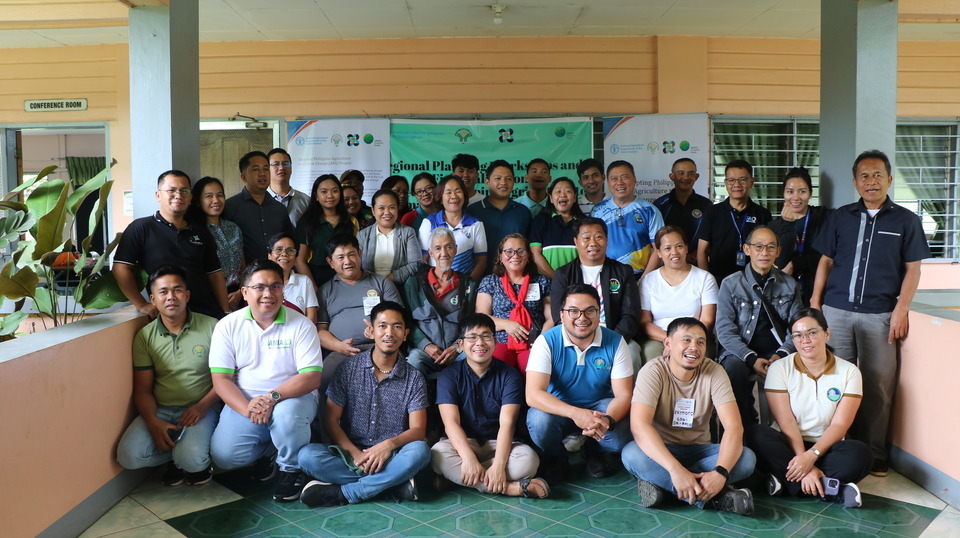
Agri-10 meets with stakeholders for the APA Project implementation that aims to improve farmers’ resilience against climate change
MALAYBALAY CITY, BUKIDNON – Being one of the pilot regions for the Adapting Philippine Agriculture to Climate Change (APA) Project, the Department of Agriculture – Regional Field Office 10 (DA-RFO 10) collaborates with the Food and Agriculture Organization of the United Nations (UN-FAO), Philippine Atmospheric, Geophysical and Astronomical Services Administration (PAGASA) and Green Climate Fund (GCF) for a Regional Planning Workshop and Field Validation from September 24 to 27, at the Northern Mindanao Agricultural Crops and Livestock Research Complex (NMACLRC), in Dalwangan, this city.
DA-10 Regional Technical Director for Research and Regulations Cora A. Dumayaca shared that the activity aims to present the rationale of the project and harmonize the coordination of the different agencies from the national up to the provincial level.
With a total USD 26.3-million (M) grant from the GCF and USD 12.9-M co-financing from DA and PAGASA, the project aims to enhance the resilience of rural farmers in areas vulnerable to climate change while also transforming the country’s agricultural system to adapt to these challenges.
Set to start this 2024 up to 2030, Region 10 is among the pilot regions identified as climate change hot spots based on climate projections along with the Cordillera Administrative Region (CAR), regions 2, 5 and 12.
For Northern Mindanao, 12 municipalities from Bukidnon province were chosen based on the assessment on climate change vulnerability, municipal profile and commitment to action. For which, interventions are intended for Rice and Corn farming with Climate Resilient Agriculture (CRA) technologies focusing on Rice-Onion crop rotation, Alternate Wetting and Drying (AWD), and organic practices on rice and corn.
As such, the planning workshop focused on how to develop and disseminate localized Climate Information Service (CIS) and CRA products and services at the provincial level. It will then be followed by field visits in Adaptation and Mitigation Initiative in Agriculture (AMIA) villages, Indigenous Peoples (IP) communities and Farmers Information and Technology Service (FITS) centers.
Meanwhile, other implementing partners present are representatives from the Agricultural Training Institute, Agricultural and Fishery Council, National Commission on Indigenous Peoples, Department of Environment and Natural Resources, Department of Agrarian Reform, Department of Science and Technology and Provincial Disaster Risk Reduction and Management Division.# (AMBM)
